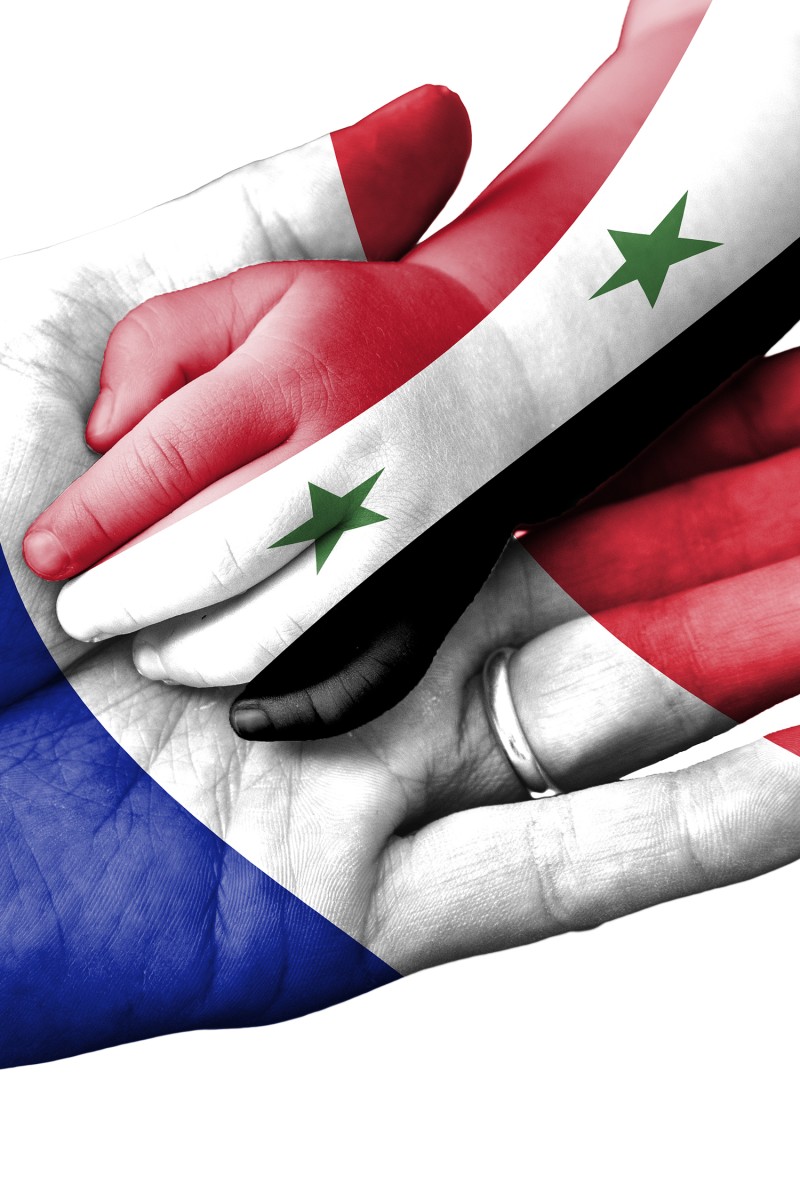
Selective solidarity: why #PrayForParis isn't enough
While the world is lit up red white and blue in a sign of solidarity, the world seems to have forgotten that more than 160,000 people have been killed in Syria's uprising-turned-civil war
 Now more than ever, we need unity, not division.
Now more than ever, we need unity, not division. One hundred and twenty-nine people were killed, 352 were wounded, and 99 are critically ill after Friday night's attacks in Paris. It's awful news. Any loss of human life is a tragedy. But the amount of global press coverage the event has been given is troubling.
The initial reaction was, “Why Paris?”. People were alarmed; Paris is somewhere familiar, somewhere safe, somwhere many of us have visited – the people there were ordinary citizens. The victims were at a rock concert; at a restaurant; at a football game. These are all things we know, and can relate to. The thought, “It could have been me” is what frightens people most about this news.
No one thinks "that could have been me" when they look at terrorism in other countries. We have become desensitised. It's easier to say, "But it doesn't really affect us", or "That wouldn't happen here," and carry on with our lives as normal. So when it happens in Paris, where we can't distance ourselves from it, we fear for ourselves. Realising that we, too, could be affected, makes terrorism much more frightening. Showing solidarity for France without acknowledging that terror is a global problem shows how very selfish humanity is: we only care when we realise it could happen to us.
While landmarks around the globe lit up red white and blue in a sign of solidarity, the world seems to have forgotten that more than 160,000 people have been killed in Syria's uprising-turned-civil war. Since the conflict flared up four years ago, no landmarks have turned red, white and black to show solidarity with Syria. Facebook is encouraging people to change their profile pictures to a French flag to show solidarity with victims. There is no option to change profile pictures to a Syrian, Iraqi or Palestinian flag, or to the flag of any other country affected by terror. More than 7,000 of those killed in Syria were children. Do thousands of innocent children not deserve the world's sympathy, too? In the West's eyes, the answer is no. There seems to be a very extreme sense of “them” and “us” when it comes to terrorism. If something happens in a Western country, and white people die, it is a tragedy. If innocent men, women and children die in Syria, Iraq, Israel, Palestine, or any other country, however, it is an unfortunate, but inevitable side effect of “the war on terror”.
As the Islamic State claimed responsibility for the attacks and announced they were in retaliation for France's September airstrikes on an IS training camp in Syria, and a Syrian passport has been found and suggested as belonging to one of the attackers, people have turned their anger and blame towards Syrians in general.
Poland announced it wouldn't accept it's EU quotation of Syrian refugees. The UK has said that Syrian refugees will be screened twice on entering the country. This is not the answer. One Syrian passport should not affect the EU's entire policy on refugees. The Paris attacks do not justify the “I-told-you-so” argument that many are adopting, claiming refugees should be monitored as though they are all terrorists. A handful of extremists do not constitute an entire nation, or an entire religion.
Refugees are innocent human beings, just like us, who are fleeing their homes in the face of the very same terror and persecution that Paris has experienced this weekend, but they do not have a safe place to run to. I'm sure none of us can even imagine the sort of atrocities that would force someone to decide to abandon their home, their country and everything they know and desperately seek a new life elsewhere – with nothing but the clothes on their back. They ran from bombs, they drowned in the sea, they are fleeing the same monsters who attacked Paris on Friday. They are turning to us looking for compassion and understanding. Instead of closing borders, building walls and shutting others out, we need to open our hearts, homes and minds to our fellow humans. It's not just Paris that's in crisis mode, it's the entire world that is in crisis mode. How can we say we are showing compassion and solidarity when it is only towards those of a certain race, nationality or belief?